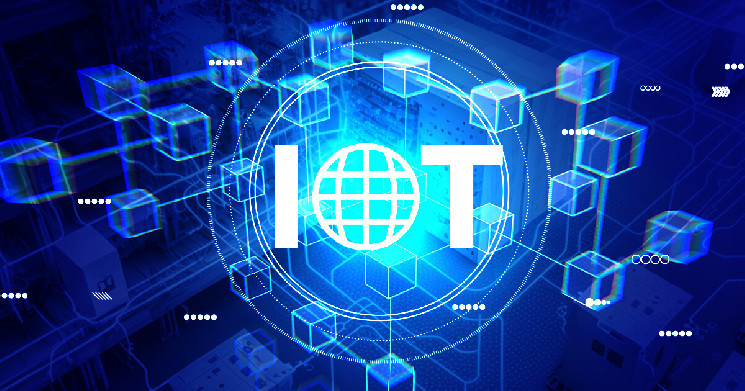Blockchain
The Blockchain Internet of Things (IoT) market is estimated to reach $124.58 by 2030, according to a recent study by Contrive Datum Insights.
The compound annual growth rate (CAGR) of the blockchain IoT space is expected to hit 93.4%, according to the study. It also predicts the Asia-Pacific region to take the lead in the expansion of Blockchain IoT as the region has already started taking steps in this field.
North America follows Asia-Pacific as the second most popular region for the expected growth of Blockchain IoT. The study mentions that the organizations in this region are getting more worried about data security — motivating them to invest in Blockchain IoT systems.
Blockchain IoT
The paper explains why the fusion of IoT and blockchain can be a game-changer for organizations. As the article describes, IoT is a smart software used to “easily finish tasks, run administrative tasks, and store things safely.”
Merging this technology with blockchain prevents third-party access to resources of the IoT, providing security, transparency, better automation, and higher productivity.
The Blockchain IoT industry has already attracted tech giants’ attention and has started to grow. One of the first initiatives in this field came from Intel in June 2020, when the company signed a Memorandum of Understanding (MoU) with Abu Dhabi to accelerate the country’s digital transformation. MoU had many components to focus on, including Blockchain IoT.
IBM followed Intel and entered the blockchain IoT sphere in January 2021 by partnering with Thai Reinsurance Public Company Limited (Thai Re). The duo rolled their sleeves to launch the Insurer Network — a Blockchain IoT project that utilizes IBM’s blockchain technology to increase the efficiency and processing speed of Thai Re.
The growing need for enhancing data security is one of the main drivers behind the expansion of this field. As technology develops, ways of storing data securely and efficiently are becoming more and more valuable, according to the paper.
Challenges
However, the field still faces challenges that hinder its growth. The paper notes several of these challenges, including integration and interoperability issues, scalability, and regulatory problems.
All IoT systems need to be able to communicate with each other to provide maximum efficiency, which can be a little tricky to maintain. As the number of systems integrated into the network grows, it would be equally challenging to scale the whole system to work at peak performance.

